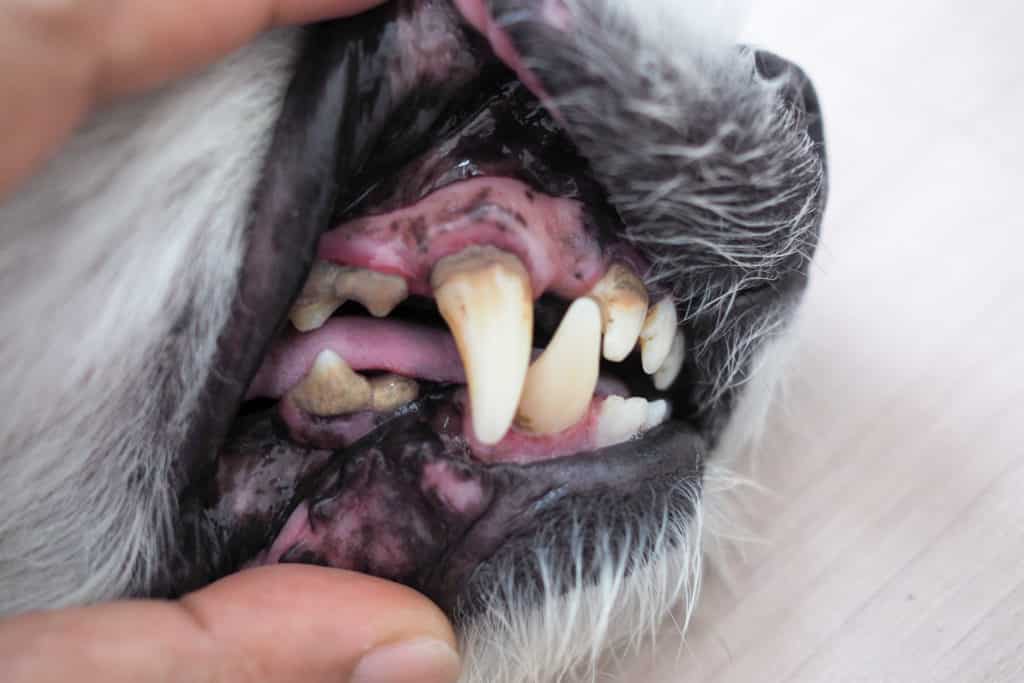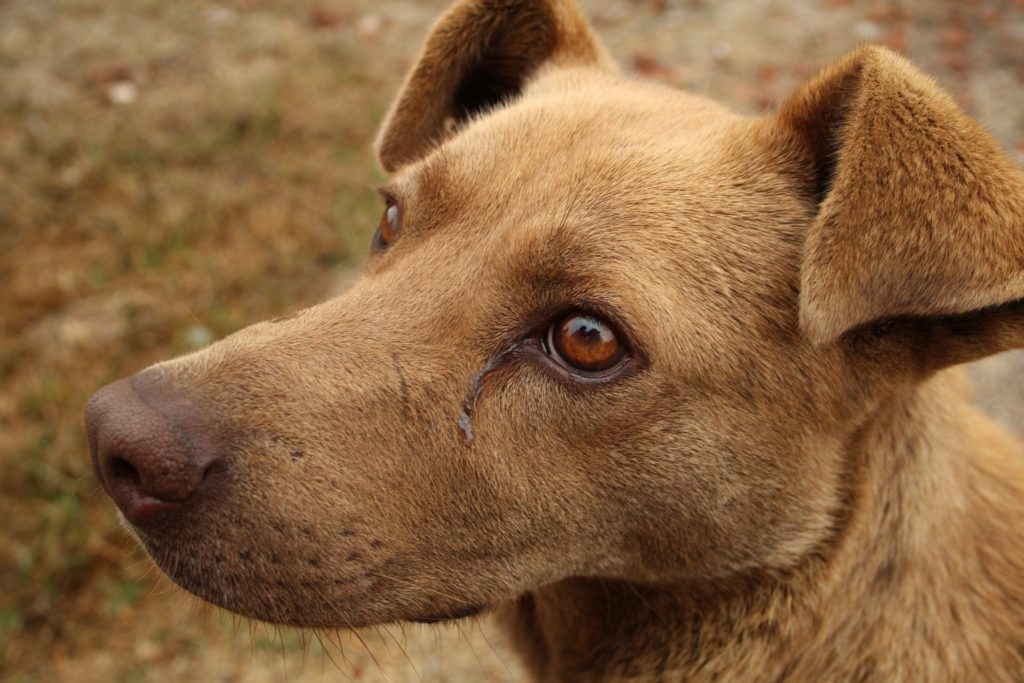I remember when I had my children and a wise old soul told me, “The days are long, but the years are short.” This saying is also applicable to pet ownership. We bring home a squirming ball of fluff and begin the hourly dance of taking them out to potty and hoping they’ll sleep at least four hours. Puppies DO grow up and countless walks, snuggles, games of fetch, and visits to the dog park later, you’ve got a 7-year-old dog; giant breeds such as the Great Dane may have just a few short months left based on their average life expectancy, while smaller toy breeds like chihuahuas or Yorkies can live happily until their mid-teens.
For any breed, reaching their golden years seems to happen overnight when they’re beloved companions. The key to helping our pets age well, lie in good preventative care and disease detection, grooming, dental care, proper nutrition, and TLC, which includes physical exercise, mental stimulation, and affection.
Dental Disease in Dogs
Many ailments that affect senior pets are consistent across all breeds. Over 80% of dogs older than 3 have some form of dental disease. Without preventative care such as daily brushing, plaque, tartar, and inflammation can lead to damage of the supporting structures of the tooth. Tooth loss, bone destruction, pain, and bacteria that enter the bloodstream causes infection and infiltration of organs such as the heart, liver, and kidneys. End-organ damage can dramatically affect the quality and duration of a pet’s life.

Dog Joint Pain & Arthritis
Large and giant breeds are prone to developing degenerative joint disease, commonly known as arthritis. Some combination of genetic predisposition and conformation, nutrition, weight, activity level, and previous injury lead to deteriorating cartilage that can eventually culminate in bone changes and even bone-on-bone rubbing. Many dogs will offset the pain of joint disease by shifting their weight to less affected limbs; this leads to muscle loss (atrophy) and inappropriate weight distribution compounding the problem. Inactivity in older pets can lead to obesity; excessive weight also contributes to degeneration and discomfort.
Vision & Hearing Loss in Dogs
Diminished vision and hearing are two common afflictions of senior animals. Lens thickening, cataracts, glaucoma, and retinal detachment are common causes of vision loss. While some conditions are correctable, most are a result of normal aging processes.
Hearing loss is typically caused by nerve degeneration and is not reversible. By keeping furniture arrangements constant, using hand cues for deaf pets, and keeping senior pets on a leash so they can enjoy the outdoors safely, vision and hearing changes need not disable your pet.
Canine Cancer
All pet owners fear the “C” word, and rightly so. Cancer affects many senior dogs; golden retrievers are disproportionately represented among lymphoma patients, boxers develop mast cell tumors, and bladder tumors are commonly found in shelties, Scotties, and west highland white terriers. While some tumors are malignant, many are benign. Fatty lipomas and wart-like adenomas are common. It’s important to let your veterinarian know if you find any new lumps or bumps on your pet so an aspiration, biopsy, or mass removal can be performed.
Heart & Kidney Disease in Dogs
Heart disease and kidney disease are two additional concerns in older pets. Mitral heart valve leakage is typical in smaller breeds. Kidney disease affects breeds indiscriminately and affects 10% of senior dogs. Physical examinations every 6 months and routine blood and urine testing often pick up changes before your pet exhibits symptoms. Though not reversible, management with medications, prescription diets, weight control, and supplements may help slow the progression of chronic diseases.
Dog Dementia
Like humans, dementia is common among geriatric pets. Cognitive dysfunction is a diagnosis of exclusion; symptoms such as whining, pacing, urine accidents, and disorientation can mimic symptoms of other illnesses such as arthritis, urinary tract infections, and seizure disorders. Imaging and laboratory testing can help differentiate dementia from other illnesses. While there is no treatment for cognitive dysfunction syndrome, keeping your pet mentally stimulated with food puzzles and training courses as well as supplemental antioxidants may help slow mental deterioration.

Pet Health is Important
Bottom-line, keep your pets healthy and active so they can best enjoy their senior years. Provide regular exercise, twice annual veterinary visits, and alert your vet to any changes in habits such as increased water intake, accidents, reluctance to climb stairs, decreased appetite or vomiting, coughing or exercise intolerance so disease can be detected early enough to slow progression. Enjoy these golden times!




